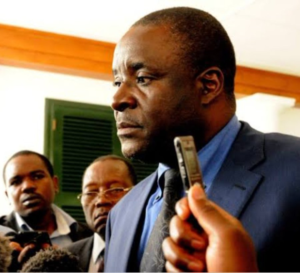AN URGENT CRY FOR REFORM: NAVIGATING THE TURBULENT WATERS OF THE PATRIOTIC ACT

In a striking call for reform, the legal and parliamentary scrutiny body, Veritas, has fervently appealed to Members of Parliament to address the far-reaching implications of the Patriotic Act. This earnest appeal emerges in the aftermath of a stern reproach from the UN Human Rights Council, labelling the act as a transgressor of international accords. The mounting indignation amplifies the exigency of re-evaluating and amending the contentious legislation.
Introduced several years ago, the Patriotic Act has been at the epicentre of fervent discussions and examinations by both legal pundits and civil liberties champions. It was primarily crafted to fortify national security and shield the nation from internal hazards. Yet, the act’s expansive and invasive clauses have sparked substantial apprehensions regarding individual liberties and human rights.
Veritas, with its hallmark dedication to maintaining legal norms and parliamentary responsibility, has adopted a courageous posture in advocating for alterations to the Patriotic Act. The watchdog’s meticulous scrutiny of the legislation underscores the necessity for revisions that harmonise national security with the safeguarding of core rights.
A notably distressing facet of the Patriotic Act is its capability to encroach on citizens’ right to privacy. Veritas argues that the act’s existing clauses sanction undue surveillance, endowing authorities with sweeping powers to delve into personal data sans sufficient oversight. This invasion of personal privacy clashes with the tenets of a democratic society and the global human rights blueprint.
The recent censure of the Patriotic Act by the UN Human Rights Council bolsters the case for reform. The council’s evaluation discerned that certain elements of the legislation overtly contravene international human rights doctrines and agreements. It’s a glaring alert that the act’s present guise is at odds with the commitments the nation has voluntarily embraced on the international theatre.
Additionally, Veritas has highlighted the risk of the Patriotic Act morphing into an instrument for political subjugation. The nebulous wording within the act can depict dissent and opposition as hazards to national security, paving the way for the stifling of peaceful disagreement, thus eroding the quintessence of democracy.
The plea for reform aims not at diluting national security protocols but ensuring their execution within legal perimeters, honouring human rights. Veritas advocates for an exhaustive review of the act, accentuating the refining of its verbiage to curb excesses and exploitation.
Moreover, Veritas has mooted the institution of stout oversight frameworks to guarantee accountability and openness in the enforcement of the Patriotic Act. This could alleviate worries about potential power misuse by authorities while preserving the act’s fundamental objective of ensuring national security.
In heeding Veritas’s reformative call, MPs are now at a pivotal juncture. They must juxtapose the urgent need for national security with the cardinal duty to uphold individual freedoms and human rights. A sagacious and all-encompassing examination of the Patriotic Act is indispensable to achieve this intricate equilibrium.
The spiralling resentment towards the Patriotic Act mirrors a burgeoning consensus that reform is requisite. Veritas’s fervent entreaty for MPs to redress the legislation’s flaws, alongside the UN Human Rights Council’s disapproval, accentuates the urgency of this discourse. It’s crucial that both the government and Parliament heed these reform calls, steering towards a more equitable and rights-adhering legal edifice that concurrently secures national security and individual freedoms.





